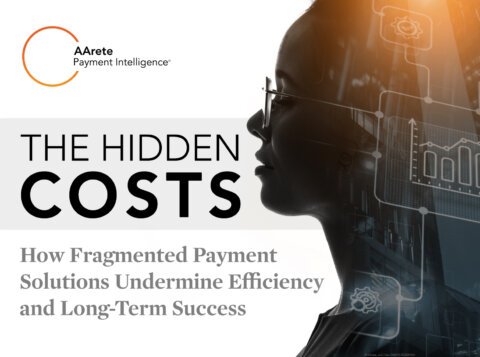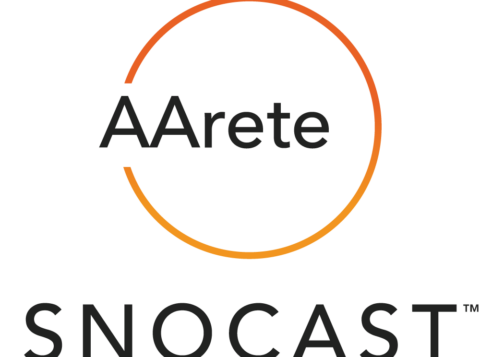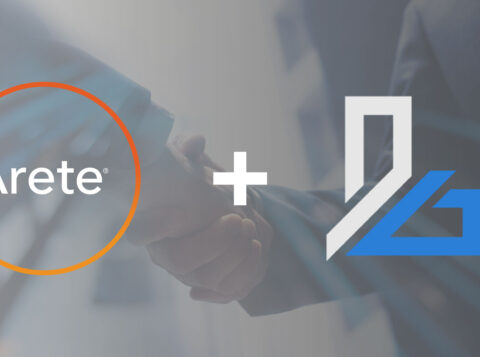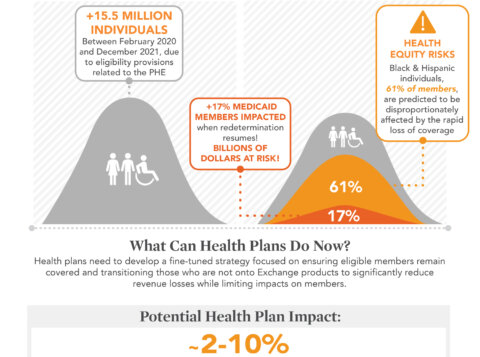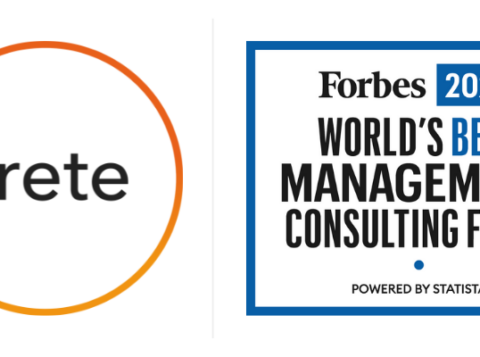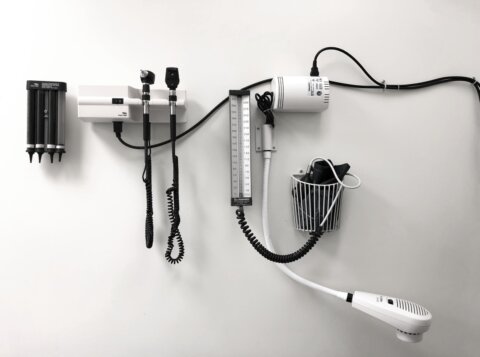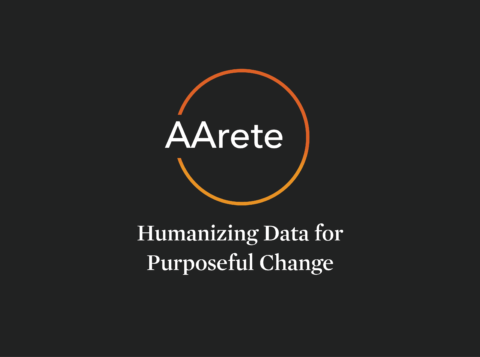The CMS Interoperability and Prior Authorization Final Rule: Strategic Considerations for Healthcare Payers

This is an AArete Healthcare Payer insight
The U.S. healthcare system is undergoing a momentous transformation, significantly impacting transparency, efficiency, and patient-first care. Driving this evolution is the CMS Interoperability and Prior Authorization Final Rule, reshaping how health information is shared and managed among providers and Healthcare Payers.
The rule’s mandates are broadly applicable, though exceptions exist. For instance, standardized API requirements for sharing information do not apply to drugs, given the distinct standards and processes involved compared to medical items and services. However, as a Healthcare Payer, you may voluntarily opt to share such information through these APIs.
This rule presents both prior authorization challenges and opportunities for Payers. Significant technology investments are needed to implement standardized APIs, streamline prior authorization processes, and enhance payer interoperability. Though daunting, these challenges can deliver administrative cost reductions, increased patient satisfaction, and competitive advantages.
Below, we’ll explore the CMS Final Rule’s key components, impacts on Payers, and operational adjustments required for compliance with payer interoperability rules.
Key Components of the CMS Interoperability and Prior Authorization Final Rule
The CMS Final Rule introduces several requirements aimed at improving healthcare efficiency, effectiveness, and transparency for patients, providers, and Payers. Central to these requirements is the development of a robust CMS interoperability platform for health payers, featuring several standardized APIs:
- Patient Access API: Provides patients with real-time access to their health information, allowing them to actively manage their care.
- Provider Access API: Ensures up-to-date patient data access to optimize care coordination and reduce redundant procedures.
- Payer-to-Payer API: Facilitates data transfer between Payers to ensure continuity of care when patients switch health plans.
- Prior Authorization API: Automates prior authorization processes to reduce administrative burdens and provide timely approvals.
In reforms targeting prior authorization, the CMS Final Rule mandates the use of APIs to minimize manual processing and expedite decision-making. Meanwhile, transparency requirements seek to improve the patient experience and facilitate the appeals process by tasking Payers with specific reasons for denials. Finally, the rule imposes stricter timeframes for prior authorization decisions to ensure patients have timely treatment access.
These reforms are a major step forward in modernizing the healthcare system by optimizing care coordination, administrative processes, and information sharing, all in the interest of improving patient outcomes.
Understanding the ONC & CMS Interoperability Regulations’ Payer Impact
The CMS Final Rule enhances real-time data sharing and interoperability across the healthcare system but introduces significant prior authorization challenges.
A major benefit of the rule is enhanced patient data access and the ability for Payers to share data across platforms. The integration of standardized APIs, particularly the Payer-to-Payer API, provides visibility into real-time patient records. Ultimately, these APIs promise to refine processes and cut costs for Payers while improving patient outcomes.
For instance, implementing FHIR-compliant APIs is costly and complex, demanding extensive IT upgrades capable of handling increased data volumes and complexities.
Integrating data from various sources requires meticulous planning, robust data management solutions, and stringent cybersecurity measures compliant with HIPAA and other regulations. Despite these challenges, successfully navigating interoperability implementation can yield substantial benefits, such as streamlined operations, reduced costs, and enhanced resource management.
Although a heavy lift, you can benefit from these initiatives as a Payer, resulting in streamlined operations, reduced costs, and improved resource management.
Enhancing Prior Authorization Processes
The rule introduces significant reforms to the prior authorization process to address long-standing issues that have caused delays in patient care and increased administrative burdens. By 2027, Healthcare Payers must implement a Prior Authorization API, facilitating automation and timely data exchanges of up-to-date information between payers and providers.
Automation provides:
- Reduced delays in patient care, particularly for chronic conditions and urgent needs.
- Enhanced operational efficiency with standardized response times, allowing 72 hours for expedited requests and seven days for standard requests.
Transparency mandates beginning in 2026 require clear rationale for prior authorization denials, empowering patients and providers with critical decision insights. Additionally, it requires Payers to publicly report metrics related to prior authorizations, such as approval rates and average decision times. These reports will bolster accountability and empower patients to make informed decisions about their healthcare. Likewise, Payers with a demonstrated track record in these areas are likely to attract and retain more members, gaining a competitive advantage.
These benefits, though substantial, require significant investment in API development, integration, and personnel training to ensure these processes are effectively adopted.
As a Payer, these updated processes should enhance operational efficiency, build trust between parties, and boost patient satisfaction by automating workflows and prioritizing transparency with the increase of data.
Making Operational Adjustments for Payer Compliance Interoperability Rules
Healthcare Payers must undergo operational adjustments to comply with the CMS rule. These initiatives demand investments in technology, technical and operational process overhauls, and strategic planning.
The successful implementation of the standardized APIs is crucial in enabling seamless information exchanges between Payers, providers, and patients. To adhere to FHIR standards, organizations should:
- Upgrade existing IT systems to ensure compatibility with standards. There will be a need for Payer departments to collaborate with IT departments and technology vendors to develop and deploy these APIs and ensure they meet technical specifications mandated by CMS.
- Establish clear guidelines for updating data and adopt robust data management practices, including securing patient data with encryption and access controls to maintain compliance with regulations.
- Invest in IT infrastructure to support required APIs by replacing outdated systems with scalable, cloud-based platforms that can handle large data volumes securely and efficiently.
- Overhaul prior authorization systems and prioritize comprehensive training and change management initiatives to transition smoothly.
- Practice strong project management to meet CMS deadlines. Payers need to allocate sufficient resources, establish clear timelines, and monitor progress to avoid non-compliance and potential penalties.
Beyond regulatory requirements, these digital transformations can prove instrumental in securing sustained success for your health organization.
Strategic Benefits of Prior Authorization and Interoperability
Investing in prior authorization automation and interoperability can result in long term strategic benefits for your organization which outweigh the short term challenges. These benefits can include:
- Reducing Administrative Costs: Automation decreases the need for manual processing, which cuts costs and minimizes errors. More time and effort can be redirected to care coordination and member services.
- Efficiency Gains: Standardized timeframes lead to faster decision-making and fewer delays in patient care, streamlining operations and enhancing service for providers and patients.
- Optimal Resource Management: Transparency and accessibility in data sharing allow for better management of healthcare resources. Payers can make actionable decisions in care authorizations and allocate resources to the most effective treatments.
- Increased Patient Satisfaction: Empowered with better information and open communication, patients can engage more actively and confidently with their care.
- Trust and Loyalty: Payers that consistently demonstrate high performance in their public prior authorization metrics reporting will immediately stand out to prospective members while retaining current ones.
These strategic benefits, however, come with challenges. As a healthcare Payer, you’ll need to understand the challenges and be prepared to address them head-on.
Addressing CMS Prior Authorization Challenges and Considerations
Navigating regulatory compliance complexities requires proactive strategies. As a healthcare payer, you must:
- Develop detailed compliance plans and project timelines to meet the 2027 implementation deadline
- Maintain agile and adaptive IT systems for continuous compliance. A dedicated compliance team must monitor changes and devise strategies to remain compliant while scalable, easy-to-update IT systems that can further facilitate ongoing compliance.
- Strengthen cybersecurity practices to mitigate data breach risks, employing advanced encryption, access control measures, and comprehensive incident response strategies.
These measures will position your payer organization at the forefront of an interconnected healthcare ecosystem.
Final Words
The CMS Interoperability and Prior Authorization Rule marks a necessary shift in U.S. healthcare focused on efficiency, transparency, and patient outcomes.
While it promises many benefits, as a Payer, you must contend with system integration, cybersecurity, and regulatory compliance complexities. Payers that proactively adapt — executing policy updates, IT investments, and data security enhancements — will be poised for success.
The time to act is now. Begin evaluating and updating policies, processes, and technologies necessary for successful healthcare compliance. And consider adopting advanced utilization and cost management strategies to overcome prior authorization challenges so your health organization can thrive in this evolving landscape.
Ready to accelerate your compliance journey? Contact our Healthcare Payer Consultants for expert guidance on navigating CMS interoperability and prior authorization regulations.














